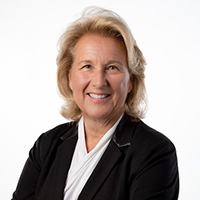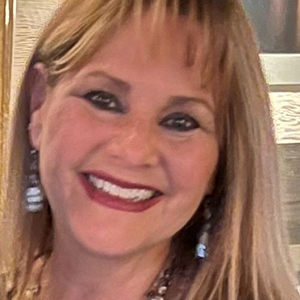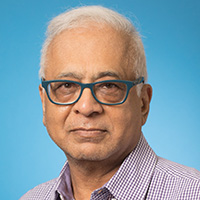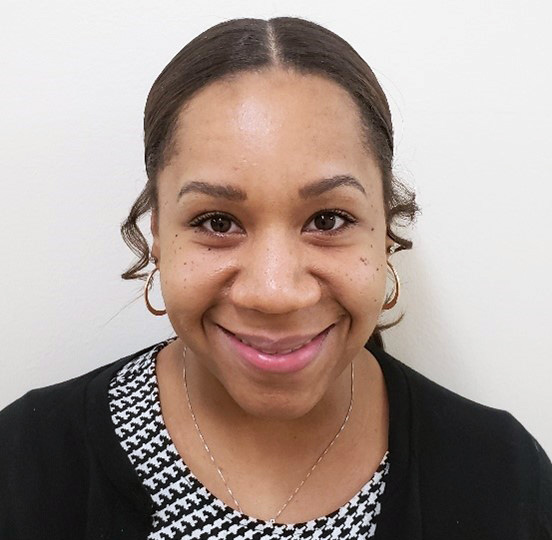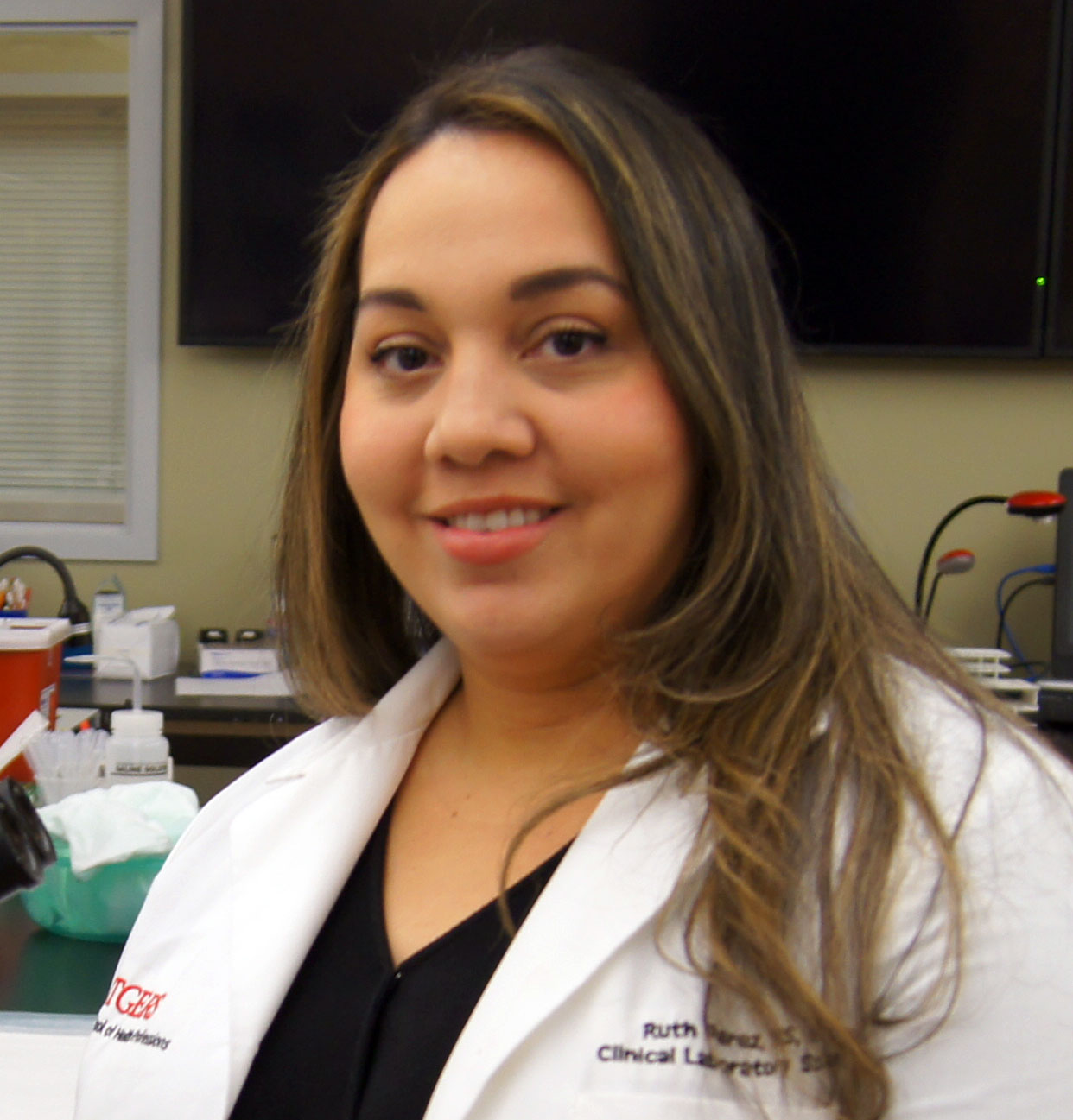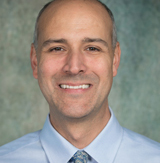Why Study Clinical Laboratory Science at SHP?
Our graduates are prepared to be effective leaders in many facets of the clinical laboratory science profession, particularly in advanced practice roles promoting quality health care through appropriate and cost-effective utilization of clinical laboratory services. Our program instills an appreciation for advanced clinical practice and research.
$135,000
average salary of a DCLS graduate.
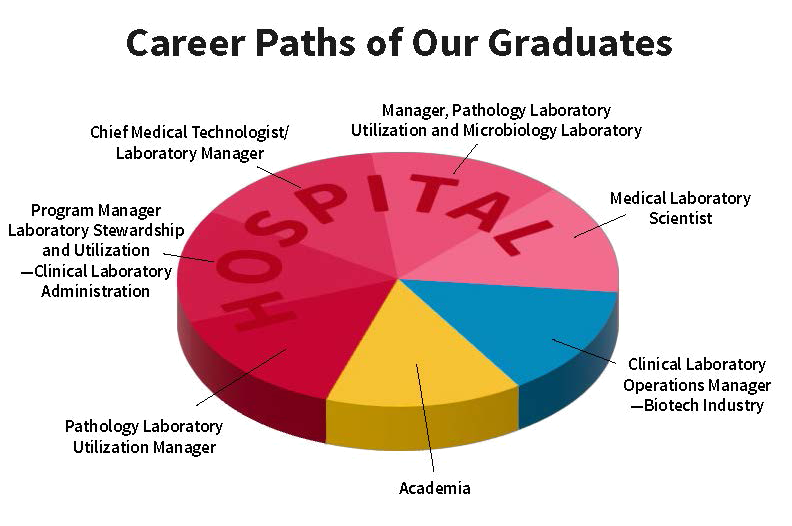
Program Highlights
Rutgers Doctor of Clinical Laboratory Science (DCLS) is an advanced practice doctoral degree for certified Medical Laboratory Scientists and was the first Advanced Practice Doctorate program in the U.S.
This new healthcare model brings advanced practice medical laboratory scientists into front-line roles on healthcare teams with physicians, pharmacists, nurses, and other health care professionals.
Our program prepares certified MLS to be advanced practice health care practitioners dedicated to increasing the value of diagnostics through consultation as members of interprofessional healthcare teams and conduct research focused on evidence of the impact of diagnostics on clinical and healthcare outcomes.

Beyond the Classroom
Doctor of Clinical Laboratory Science students complete a one-year advanced clinical practice residency at an affiliate clinical site. The clinical practice residency learning environment is supplemented by weekly virtual advisement sessions. Our program instills an appreciation for advanced clinical practice and research. Students complete a practice-based outcomes research project.
We work with students to try and identify a site in their geographical area that is amenable to collaborate as an affiliate with Rutgers to provide the DCLS clinical practice residency experience and curriculum activities. A formal affiliation agreement with the site must be established.
DCLS Clinical Education Affiliates
RWJBarnabas Health NJ
Hackensack Meridian Health Inc. NJ
University Hospital NJ
AU Health- Wellstar Health System, Inc, GA
Iowa City VA Health Care System IA
Northwestern Memorial Healthcare, IL
University of Maryland Medical Center, MD
Baptist Memorial Hospital -Golden Triangle, MS
Barnes Jewish Hospital, MO
The New York and Presbyterian Hospital, NY
Froedtert Health Inc. & The Medical College of Wisconsin, Inc., WI
We have clinical education affiliate sites in several states and continue to seek additional sites. However, we cannot guarantee a site can be found in a specific geographical area and travel or relocation for the clinical practice year may be required and may incur additional expense to the student.
Program Overview
The value and contribution of DCLS include:
- Experts in clinical laboratory testing
- Collaborate with clinical pathology to serve as consultants in clinical rounding, patient care and providing information to improve clinical diagnosis.
- Consult with clinicians and the interprofessional team regarding lab test ordering and interpretation.
- Consult with patients on understanding lab tests.
- Develop patient-centered test algorithms, reflex testing.
- Participate in inter-professional healthcare team conferences and patient care rounds.
- Conduct outcomes studies that benefit patients, patient safety, and the institution.
- Promoters of quality health care through appropriate and cost-effective utilization of clinical laboratory services, and advocates of patient safety by contributing to the reduction of medical errors
Doctor of Clinical Laboratory Science students complete a one-year advanced clinical practice residency at an affiliate clinical site. The clinical practice residency education experience is supplemented by weekly virtual webinars with the DCLS cohort and individual advisement sessions. Students complete a practice-based outcomes research project.
The mission of the Doctor of Clinical Laboratory Science Program is to improve people’s lives in New Jersey and beyond, through quality education, innovative research and scholarship, superior service, and improving the quality and delivery of clinical laboratory services.
The goal of the Doctor of Clinical Laboratory Science program is to prepare caring, collaborative, and competent doctoral educated advanced practitioners in clinical laboratory science dedicated to increasing patient safety and the value of clinical laboratory services through consulting, collaborating on the interprofessional team, optimizing test utilization and diagnostic processes, and conducting and applying evidence-based translational research.
Upon completion of the program, graduates will be prepared to:
- Provide patient-centered, customized consultation services on appropriate test selection and interpretation for the purpose of collaborative clinical decision making among the interprofessional health care team and for the patient.
- Monitor laboratory data, test utilization, and diagnostic testing processes in individual patients and populations using informatics and analytics to reduce diagnostic errors, improve efficiency, and reduce costs.
- Conduct research and apply evidence to demonstrate clinical utility of laboratory tests and algorithms and to improve the quality, efficiency, and safety of the overall diagnostic testing process.
- Educate health care providers, patients, their families, and the general public about the indications, best evidence, patient preparation, and interpretation of clinical laboratory testing, including home self-testing.
- Contribute to laboratory operations to comply with all state and federal laws and regulations, as well as guidelines determined by professional boards of licensure, and certification/accreditation agencies.
- Participate in health policy decision making at all institutional levels using best evidence.
- Demonstrate exemplary professional and ethical behaviors in practice, education, and scholarly activities.
The clinical practice/residency year is full time, three consecutive semester Summer-12 weeks, Fall -15 weeks, Spring-15 weeks and takes place at an affiliated accredited medical centers/hospital with a fully accredited clinical laboratory. The time commitment is designed as a 40-hour week with 20-25 hours per week as the target average hours for completion of DCLS educational requirements within the traditional work week at the clinical site.
In addition, significant blocks of time beyond traditional work hours will be required to complete some curriculum requirements, particularly clinical services research related to the DCLS Research Project & the Diagnostics Consultation Model©(DCM©) consultation activities, and case analysis. These hours contribute to the 40 hr./wk. full time expectations.
Accreditation
The Doctoral program, Doctor of Clinical Laboratory Science at Rutgers, the State University of New Jersey is a Candidate for Accreditation by the National Accrediting Agency for Clinical Laboratory Sciences (NAACLS), 5600 N. River Rd, Suite 720 Rosemont IL 60018-5119; 773.714.8880.
Candidacy is a “pre-accreditation” status with NAACLS, awarded to developing or emerging programs for a maximum period of 4 years.
Admission Criteria
The Rutgers Doctorate in Clinical Laboratory Science (DCLS) program is a competitive admission process. Admissions decisions are by the DCLS Admissions Committee. Only complete applications including all required documents submitted by the application due date will be reviewed.
Application Deadline is March 15 – application and all required supportive documents.
Admission /Eligibility Requirements:
- Prospective students must be Certified Medical Laboratory Scientists (MLS-ASCP)cm or equivalent.
- Baccalaureate degree in Clinical/Medical Laboratory Science or related science from a regionally accredited US institution or equivalent.
- Completion of a NAACLS-accredited Medical Laboratory Science program or equivalent.
- Minimum overall GPA of 3.3; Science courses cumulative GPA of 3.2.
- Minimum three years’ experience post-MLS certification working as a medical laboratory scientist in a United States clinical laboratory.
- Preference will be given to applicants with work experience as a generalist or work experience in several clinical laboratory science areas.
- GRE is not required
CLS applicant required materials:
- Official transcripts from all institutions attended- undergraduate and graduate coursework.
- Proof of current professional certification as a generalist Medical Laboratory Scientist MLS(ASCP)CM, MLS(ASCP)i , or equivalent or MT(ASCP) with proof of continuing education equivalent to ASCP-BOC-CMP.
- Proof of continuing certification maintenance: current ASCP-BOC CMP-CE transcript or official transcript of continuing education equivalent to ASCP-BOC-CMP such as ASCLS-PACE CE transcript
- Resume or Curriculum vitae (CV)
- Letter of intent addressing the reasons for pursuing the DCLS degree, research interests and short and long-term career goals for completing the DCLS program. (maximum 500 words)
- Two letters of recommendation on institution letterhead including address and email of the individual providing the letter. One letter must be from an individual with a doctoral degree who is familiar your professional work responsibilities, ethics and professionalism and/or academic achievements.
Degree from Non-US Institution:Applicants who have earned a degree from a non-US accredited institution must provide International transcript evaluation records (courses and grades) from World Evaluation Services (WES) and an English Proficiency Examination as follows: TOEFL, achieve a minimum score of 550 or higher or International English Language Testing System (IELTS) achieve 6.5 or higher.
International Applicants
Guidance for distance education: This program is entirely online except for the in-person (in the United States only) clinical component. Thus, if you are an international applicant interested in the DCLS program, please follow the Federal Department of Homeland Security guidance regarding online/distance programs.
https://studyinthestates.dhs.gov/students/study/full-course-of-study
Interview: The Admissions Committee carefully reviews each complete application submitted by the due date and the most competitive applicants are invited for an interview. Interviews are conducted virtually via Zoom.
Non-Discrimination Statement: The University does not discriminate on the basis of race/color, national origin/ancestry, ethnicity, religion, sex/gender, sexual orientation, gender identity or expression, age, disability, or marital status. The University recognizes the value of diversity and is committed to providing appropriate support to its student body.
Technical and Health /Immunization Requirements:
- DCLS engage in clinical, research and education activities and must comply with the RBHS-SHP technical standards https://shp.rutgers.edu/admissions/rbhs-technical-standards/
- Health and Immunization: Upon acceptance into the program DCLS students submit documentation and must be deemed compliant for all Category I Health and Immunization requirements prior to enrolling in courses for the first semester. Health records and immunizations must be current throughout enrollment in the program https://njms.rutgers.edu/departments/family_medicine/shs/immun_shrp.php
Drug Screen: Typically, all programs with a clinical component require drug testing. However, students only require drug testing if the clinical site requests it. Students will be informed regarding clinical site requirements before the start date of their clinical experience.
Criminal Background Check: A Criminal Background Check is required upon admission.
Tuition and Fees
For Tuition and Fees, please see the Graduate Tuition and Fees table.
(Scroll down to RBHS Tuition and Fee Rates and click on School of Health Professions)
Tuition and fees are subject to change, as voted on annually by the Board of Governors.
Estimated tuition cost based on 2023-2024 Graduate Distance/Hybrid Programs Tuition Rates:
- NJ Resident: In-State Tuition $855 per cr. (80 cr program): $68,400
- Non-Resident Out-of-State Tuition $955 per cr. (80 cr program): $76,400
- Applicable Fees: PT Program $1420 per year; FT program $1930 per year
International Applicants
Guidance for distance education: This program is entirely online except for the in-person (in the United States only) clinical component. Thus, if you are an international applicant interested in the DCLS program, please follow the Federal Department of Homeland Security guidance regarding online/distance programs.
https://studyinthestates.dhs.gov/students/study/full-course-of-study
Degree from Non-US Institution: Applicants who have earned a degree from a non-US accredited institution must provide International transcript evaluation records (courses and grades) from World Evaluation Services (WES) and an English Proficiency Examination as follows: TOEFL, achieve a minimum score of 550 or higher or International English Language Testing System (IELTS) achieve 6.5 or higher.
Curriculum
Program Requirements and Course Descriptions
The DCLS program offers an innovative educational experience utilizing a blended pedagogy, distance (online) education, and clinical practice. The curriculum includes interdisciplinary theoretical courses and the clinical practice residency enhances the student’s experiences to interact with other healthcare professionals.
The DCLS curriculum focuses on four core areas: Advanced Clinical Laboratory Science, Professional, Research, and Clinical Practice/Residency. All pre-residency courses are offered online and some courses may be supplemented with live, interactive webinars.
80 Credits Post-baccalaureate Degree
Length of Program: PT: 4.5-5 yrs. FT: 3.5-4yrs.
Pre-Clinical Practice Residency Curriculum – designed to meet the needs of the practicing MLS professional pursuing an advanced degree and continues professional develop working as an MLS.
All pre-clinical practice residency courses are offered online and require a time commitment of 9-12 hours per week with online and off-line work.
- Part-Time: 6 credits/semester (2 courses/semester,18-24 hours a week)
- Full Time: 9 credits/semester = 3 courses/semester 27-36 hr. per week)
Consideration of time allocation and balance of work commitments, academic commitments, and personal life commitments is important in selecting a PT or FT course plan. A DCLS advisor is assigned to assist in assessing options.
Clinical Practice Residency Curriculum – The clinical practice/residency takes place at an affiliated accredited medical centers/hospital with a fully accredited clinical laboratory. We have affiliate clinical sites in several states and continue to seek clinical sites to affiliate with Rutgers. Upon acceptance into the program, we work with students to try and identify a site in their geographical area who are amenable to work with us to provide the DCLS Clinical Practice Residency experiences. This could be the hospital where they are employed, one that is part of their hospital system or other in their geographical area.
However, we cannot guarantee a site can be found in the geographical area, travel or relocation may be required and incur additional expense.
Clinical Practice Residency
- Full time (42 wks.) 3 semesters, Mon-Fri: Summer,12 wk., Fall, 15 wks., Spring 15 wks.
- At an affiliated clinical site
- On-site clinical practice residency based on Diagnostics Consultation Model (DCM© )
Academic Requirements: Student must maintain a “B” average (GPA 3.0). Students are expected to continually maintain matriculation while enrolled in the program.
Additional Resources
ASCLS Advanced Practice Doctorate in CLS Position Paper
https://ascls.org/advanced-practice-doctorate-in-clinical-laboratory-science/
ARUP: Doctor of Clinical Laboratory Science (DCLS): Contributing Quality and Value in Clinical Laboratory Services Delivery
https://arup.utah.edu/education/dcls-2019.php/
Clinical Practice Residency
The Clinical Practice Residency year is three consecutive semester Summer (12 weeks), Fall (15 weeks, Spring ( 15 weeks). FT- 40 hour per week. 20-25 hours per week- target average hours for completion of DCLS educational requirements within the traditional work week at the clinical site. In addition, significant blocks of time beyond traditional work hours will be required to complete some curriculum requirements, particularly clinical services research related to the DCLS Project & the Diagnostics Consultation Model©( DCM©) consultation case analysis. These hours contribute to the 40 hr/wk FT Residency expectations.
Residency Course Series (Residency I- III) share the most activities of daily value (ADVs) with clinical laboratory (CL) functions; targeted hours are 10 hours per traditional work week.
Project Course Series (Project I-III) share the next most ADVs with CL functions; targeted hours are 6 hours per traditional work week.
Seminar Course Series (Seminar II – IV) targeted hours are 4 hours per traditional work week, includes consultations in the CIRT, presentations and other activities as assigned.
The Resident Weekly Schedule is developed to aid in the allocation of time required for all educational requirements, interwoven with CL functions, to be addressed during a routine work week. Hours beyond the regular work week are intended to supplement, adding time to complete educational requirements.
Each semester includes courses associated with the clinical practice/residency and each course has specific assignments and activities to assess learning outcomes. The courses are: DCLS Practice/Residency I, II, III; DCLS Research Project I, II, II; DCLS Seminar II, III, IV.
The Diagnostics Consultation Model© operationalizes the practice of the DCLS as active members of interprofessional health care teams in a variety of settings:
- Patient Care Intervention (PCI)– Daily patient-care clinical rounds with inter-professional health care team: attending physician, residents, medical students, DCLS residents, PharmD, Nurses, other health providers.
- Diagnostics Management Intervention (DMI)– Encounters received through direct case management requests to the clinical laboratory with inter-professional team: pathologists, pathology residents, DCLS, clinicians, laboratorians, and other healthcare providers.
- Utilization Review Intervention (URI)– Encounters through review of reports generated by the LIS rules with inter-professional team: DCLS, pathologists, pathology residents, laboratorians, clinicians, other healthcare providers i.e. genetic counselors.
- Community Intervention (CI)– Consumer information response encounters via labtestsonline.org and the ASCLS public consultation network, and other community-based settings.
- Research – conduct outcomes research project during the clinical residency year.
These experiences and the clinical and quality outcomes research require continuous involvement. The scope of interprofessional interactions and the research component are aligned with continuous interaction with other healthcare providers to establish the DCLS on interprofessional healthcare teams and work on the clinical outcomes research project. The value and contribution of DCLS students and graduates includes increasing diagnostic efficiency, facilitating patient management outcomes, and improving timely access to accurate and appropriate laboratory information by participating directly in patient-care decisions, monitoring laboratory utilization, and conducting research on the diagnostic process.
FAQs
The Diagnostics Consultation Model (DCM©) operationalizes the practice of the DCLS as active members of interprofessional health care teams in a variety of setting.
- Patient Care Intervention (PCI): Daily patient-care clinical rounds with inter-professional healthcare team: attending physician, residents, medical students, DCLS residents, PharmD, Nurses, other healthcare providers.
- Diagnostics Management Intervention (DMI): Encounters received through direct case management requests to the clinical laboratory with inter-professional team: pathologists, pathology residents, DCLS, clinicians, laboratorians, and other healthcare providers.
- Utilization Review Intervention (URI): Encounters through review of reports generated by the LIS rules with inter-professional team: DCLS, pathologists, pathology residents, laboratorians, clinicians, other healthcare providers i.e., genetic counselors.
- Community Intervention (CI): Consumer information response encounters via testing.com and the ASCLS public consultation network, and other community-based settings.
- Research – conduct clinical and quality outcomes research project during the clinical practice residency year under the guidance of the DCLS faculty mentor and clinical site preceptor.
These experiences require continuous involvement with interdisciplinary healthcare teams. The scope of interprofessional interactions and the research component are aligned with interaction with other healthcare providers to establish the DCLS as a partner on interdisciplinary healthcare teams and conduct the clinical outcomes research project.
Financial Aid Information can be found at: https://scarlethub.rutgers.edu/financial-services/
SHP Graduate Admission Application: https://shp.rutgers.edu/grad-apply/
At the time of application, a minimum three-years post-certification full time work experience in a clinical laboratory in the US is required. Preference will be given to practicing MLS with work experiences as a generalist or who have worked in several areas of the clinical laboratory.
The DCLS Admissions Committee carefully reviews each complete application packet and admissions is competitive.
International Inquires
At this time the DCLS program is not offering admissions to international candidates, unless you can demonstrate that you worked in the US as a Medical Laboratory Scientist (MLS) preferably as a generalist for a minimum of three years and meet all other admissions requirements. The program is competitive and admission into the program is by the DCLS Admissions Committee. Please refer to the DCLS website for details about the admissions criteria, eligibility, pre-requisites, and other required documentation. Refer to the Admissions Criteria on the website.
At this time the DCLS program is not offering admissions to international candidates, unless you can demonstrate that you worked in the US as a Medical Laboratory Scientist (MLS) preferably as a generalist for a minimum of three years and meet all other admissions requirements. The program is competitive and admission into the program is by the DCLS Admissions Committee.
Please refer to the DCLS website for details about the admissions criteria, eligibility, pre-requisites, and other required documentation. Refer to the Admissions Criteria on the website.
The pre-residency theoretical courses are online with weekly lecture materials, discussion forum, quizzes/exams and other assignments and instructions for interaction and assignment and due dates. Some courses will supplement with synchronous webinars via Zoom, typically 7pm-9pm ET. Students are notified of the webinar dates/times at the start to the course so they have time to arrange their schedule to participate.


